Teacher residency program improves retention and diversity
A $1.5 million Kaiser Permanente grant addresses Colorado teacher shortage through a program modeled after medical residencies.
It’s important for students from racially diverse backgrounds to see themselves and their experiences reflected in their teachers.
Amid Colorado’s severe teacher shortage, a teacher residency program from the Public Education & Business Coalition is improving teacher retention and diversity with the help of a grant from Kaiser Permanente.
The PEBC Teacher Residency program, modeled on medical residencies, has evolved from 2 Colorado-based teacher residency programs dating back 20 years.
With the help of a $1.5 million, 2-year Kaiser Permanente grant awarded in the winter of 2023, the program is expanding mental health support and reducing financial barriers for “pre-service” teacher candidates with a focus on candidates of color. Kaiser Permanente grant funding comes from the Kaiser Permanente Community Health Fund at the Denver Foundation.
“Healthy schools are the cornerstones of healthy communities, and to develop and maintain healthy schools, we need to ensure a stable, diverse pipeline of teachers,” said Mike Ramseier, regional president of Kaiser Permanente in Colorado. “Kaiser Permanente is proud to support PEBC’s efforts.”
By giving teacher residents training on social, emotional, and trauma-informed practices, the PEBC residency improves teacher retention rates long-term; 81% of teachers who completed the PEBC residency are still teaching after 5 years, compared with the national average of only 55%. The grant enhances those supports by layering on Kaiser Permanente’s Thriving Schools Resilience in School Environments, or RISE, social-emotional learning and trauma-informed practice resources.
And the number of racially diverse teacher candidates in the residency has risen by 8 percentage points.
-
Social Share
- Share Teacher Residency Program Improves Retention and Diversity on Pinterest
- Share Teacher Residency Program Improves Retention and Diversity on LinkedIn
- Share Teacher Residency Program Improves Retention and Diversity on Twitter
- Share Teacher Residency Program Improves Retention and Diversity on Facebook
- Print Teacher Residency Program Improves Retention and Diversity
- Email Teacher Residency Program Improves Retention and Diversity
Healthy schools are the cornerstones of healthy communities, and to develop and maintain healthy schools, we need to ensure a stable, diverse pipeline of teachers. Mike Ramseier, regional president
"Through our partnership with Kaiser Permanente, the PEBC Teacher Residency program has seen a significant positive impact on key initiatives, achieving remarkable progress in a short span,” said Tracy Wagers, PEBC manager of Resident Development, Coaching, and Mentoring. “This alliance contributed to developing a research-based framework of social-emotional learning competencies that enrich our teacher licensure curriculum and promote educator mental health. The mental health skills our teachers in training learn can be translated for use within the classroom with colleagues and with students.”
The program and the grant support teacher candidates through a critical stage in early professional development. Many of them face financial hurdles when completing licensure-required teacher residency, which requires working in classrooms without pay or health care coverage. Costs include licensure exams, study materials, and living expenses, as well as an emergency fund for unforeseen circumstances. The barriers are particularly pronounced for under-resourced populations. Increasing the number of teachers from diverse backgrounds is important because students who see themselves and their experiences reflected in their teachers gain a new confidence about what they can achieve and where their future could take them.
Program participants must have a bachelor’s degree in any subject to enter the program. They complete a year-long residency in which they’re trained and embedded in a classroom with a veteran mentor teacher for an entire school year as they earn their teaching license. Part of the Kaiser Permanente grant provides additional stipends that students can use to support themselves throughout the residency.
“Being able to support myself while doing a teaching program was pivotal,” said Shane Shelby, a participant in the PEBC residency program who identifies as Hispanic. “I might not have gone into teaching at this moment.” Shelby completed his residency in May 2024.
Learn more about our commitment to improving communities.

November 17, 2025
Health and housing partnerships create lasting change
Victorville, California, has achieved a significant reduction in homelessness …

November 4, 2025
A best place to work for veterans
As a 2025 top Military Friendly Employer, Kaiser Permanente supports veterans …

October 15, 2025
Kaiser Permanente shows up strong for the annual plane pull
Championing health equity and teamwork drives Kaiser Permanente’s support …

September 17, 2025
Our health plans in Colorado earn national accolades
The National Committee for Quality Assurance’s 2025 health plan ratings …

July 31, 2025
A legacy of healing, one plate at a time
With Kaiser Permanente’s help, Mama’s Kitchen is creating a quiet yet powerful …
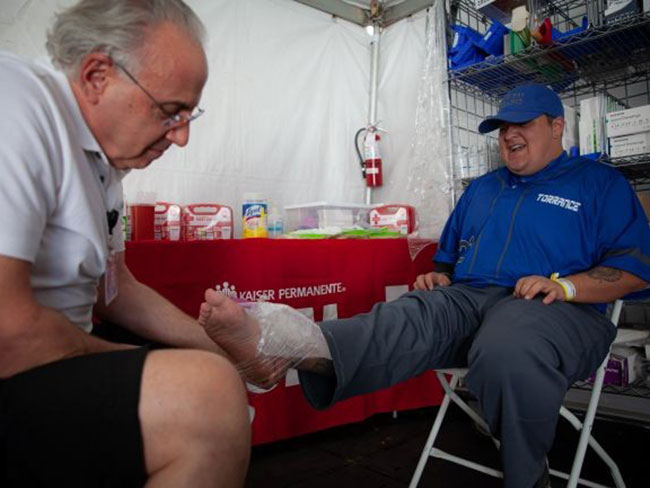
July 16, 2025
More than just a game
Kaiser Permanente partners with Special Olympics of Southern California …
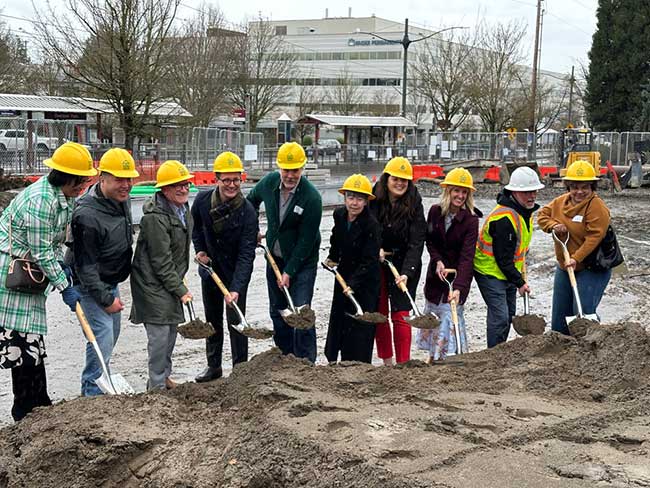
April 15, 2025
3 ways we’re helping build and preserve affordable housing
Good health starts with having a safe, affordable place to live.

March 27, 2025
We’re committed to mentorship, mental health, and communities
Kaiser Permanente awarded Elevate Your G.A.M.E. a grant to expand program …

March 25, 2025
AI in health care: 7 principles of responsible use
These guidelines ensure we use artificial intelligence tools that are safe …
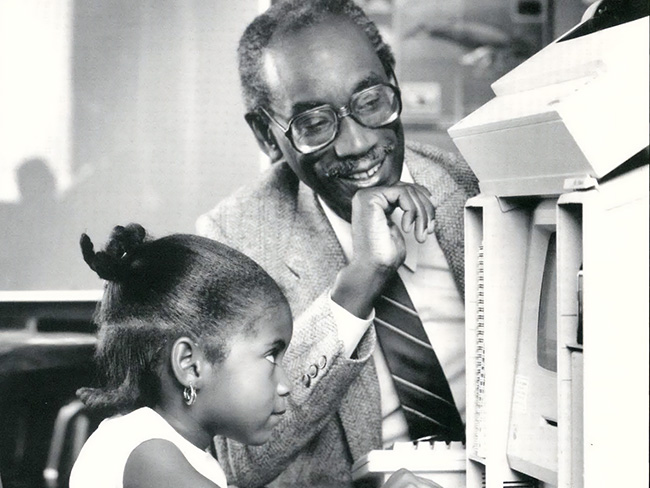
March 17, 2025
Remembering Bill Coggins and his lasting legacy
The founder of the Kaiser Permanente Watts Counseling and Learning Center …

December 26, 2024
Linking isolated communities to care
A collaborative partnership, powered by trusted nonprofit partners, brings …
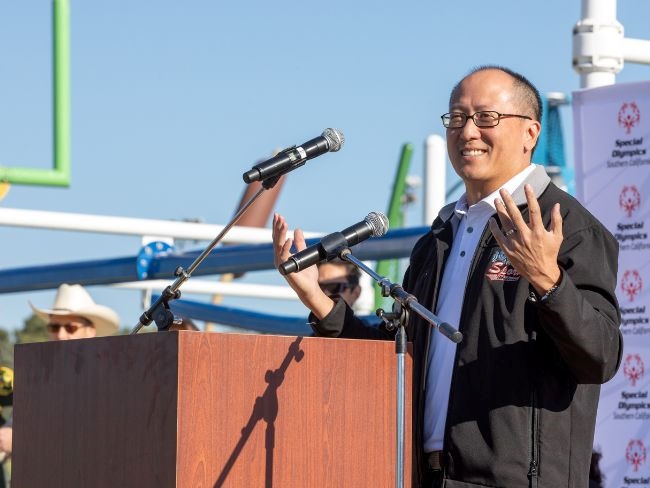
December 16, 2024
Helping to build and support inclusive communities
At the Special Olympics Southern California Fall Games, Kaiser Permanente …

November 18, 2024
Grant supports Colorado Safe Futures Fund
Through public health initiatives, $95,000 will be used to prevent firearm …
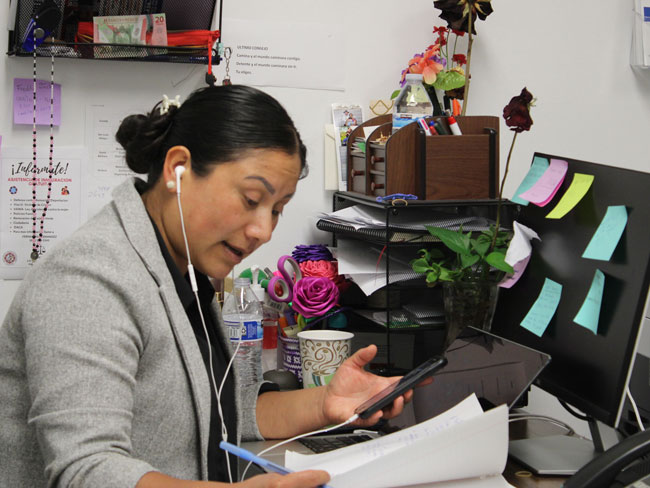
November 11, 2024
Health care coverage now accessible to uninsured people
Indigenous farmworkers may qualify for new Kaiser Permanente coverage.

November 11, 2024
Medicare telehealth flexibilities should be here to stay
We urge Congress to extend policies that have improved access to care and …

October 29, 2024
Paid internships support future public health leaders
Valedictorian uses bilingual-bicultural fluency to connect with community …

October 15, 2024
Our dedication to fostering well-being and equity
The 2023 Kaiser Permanente Southern California Community Health County …

October 2, 2024
Honored for supporting people with disabilities
Leading U.S. disability organizations recognize Kaiser Permanente for supporting …
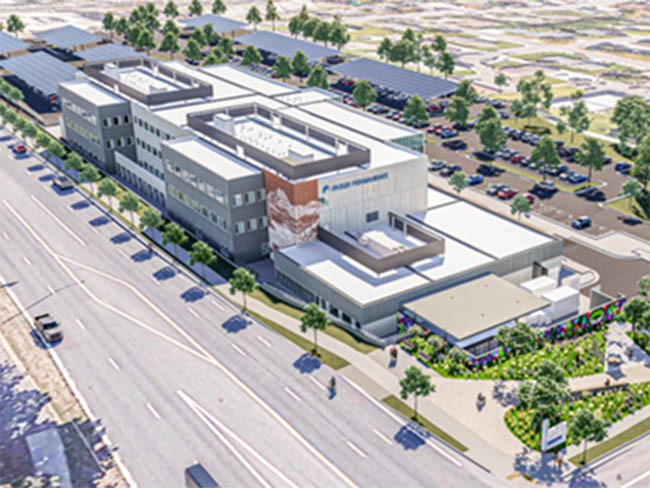
September 19, 2024
First look at new Lakewood facilities
New medical offices will enhance the health care experience for members …
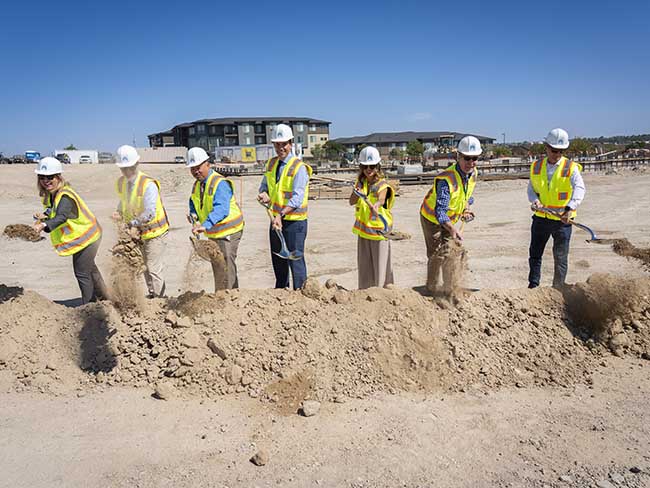
September 17, 2024
Groundbreaking at new medical offices in Pueblo
The new Pueblo North Medical Offices will replace the existing facility …
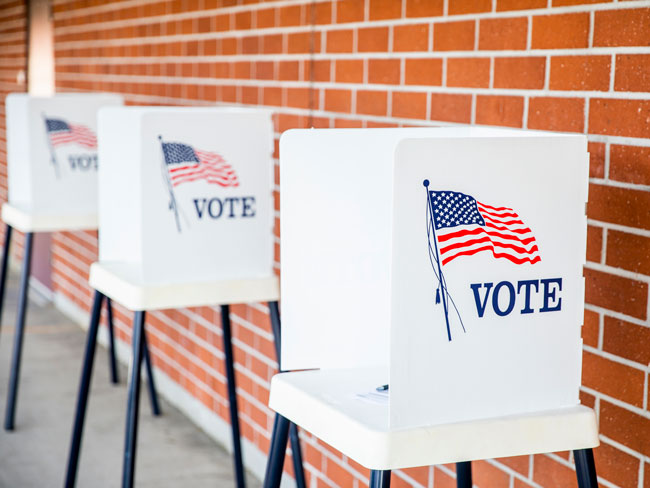
September 16, 2024
Voting affects the health of our communities
In honor of National Voter Registration Day, we encourage everyone who …

August 29, 2024
Living longer and better lives
Kaiser Permanente in Southern California invests $10 million in Riverside …

July 23, 2024
Increasing resources to house single-parent families
Warren Village expands its efforts to transform Denver’s affordable housing …

July 11, 2024
Transforming education and mental health in Watts
Our investment in the Watts neighborhood of California, in partnership …
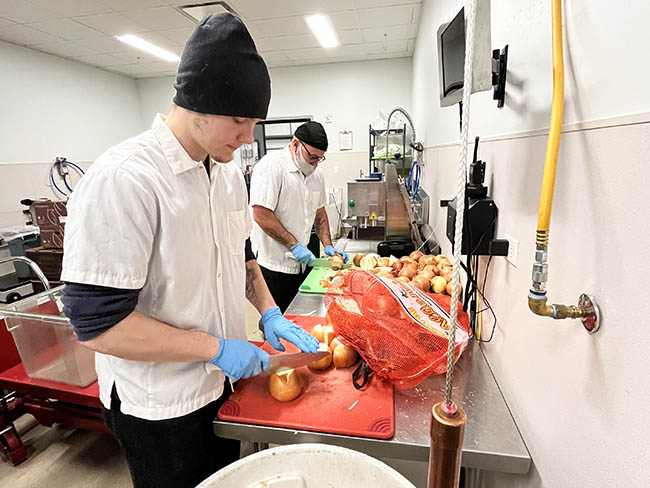
July 10, 2024
Grant to help make school lunches healthier for kids
Chef Ann Foundation will use $275,000 grant for Colorado program to convert …

July 2, 2024
Reducing cultural barriers to food security
To reduce barriers, Food Bank of the Rockies’ Culturally Responsive Food …
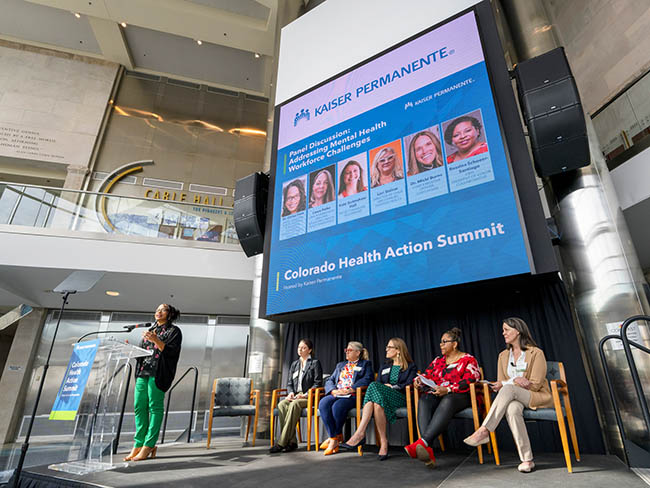
June 28, 2024
Health Action Summit highlights mental health opportunities
The Kaiser Permanente Colorado Health Action Summit gathered nonprofits, …

June 19, 2024
Investments in Black community promote total health for all
Funding from Kaiser Permanente in Washington helps to promote mental health, …
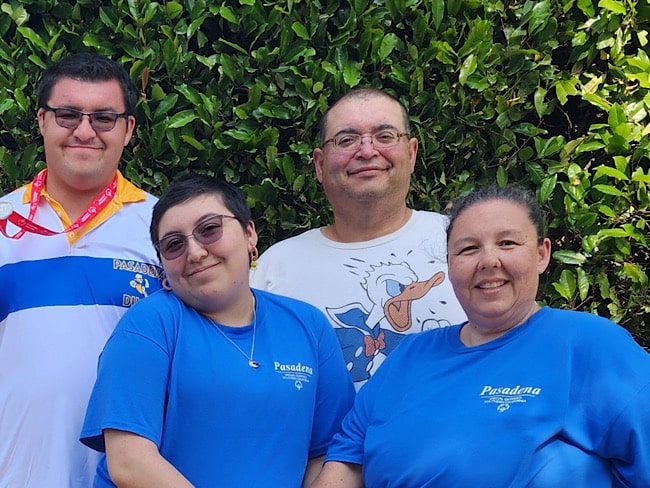
May 30, 2024
Special Olympics Summer Games: Will you play a part?
Kaiser Permanente employee Carrie Zaragoza volunteers for Special Olympics …

May 14, 2024
Recognized again for leadership in diversity and inclusion
Fair360 names Kaiser Permanente to its Top 50 Hall of Fame for the seventh …

May 7, 2024
Can the badly broken prescription drug market be fixed?
Prescription drugs are unaffordable for millions of people. With the right …

April 12, 2024
It’s time to address America’s Black maternal health crisis
Health care leaders and policymakers should each play their part to help …

April 8, 2024
Martin Luther King Jr.’s dream is alive at Kaiser Permanente
Greg A. Adams, chair and chief executive officer of Kaiser Permanente, …

March 26, 2024
Donations assure access to affordable health care
Kaiser Permanente grant and challenge spark $18.7 million for Denver Health’s …

March 18, 2024
Program helps member prioritize her health
Medical Financial Assistance program supports access to health care.

March 6, 2024
Former employee honored for supporting South LA families
Bill Coggins, who founded the Kaiser Permanente Watts Counseling and Learning …
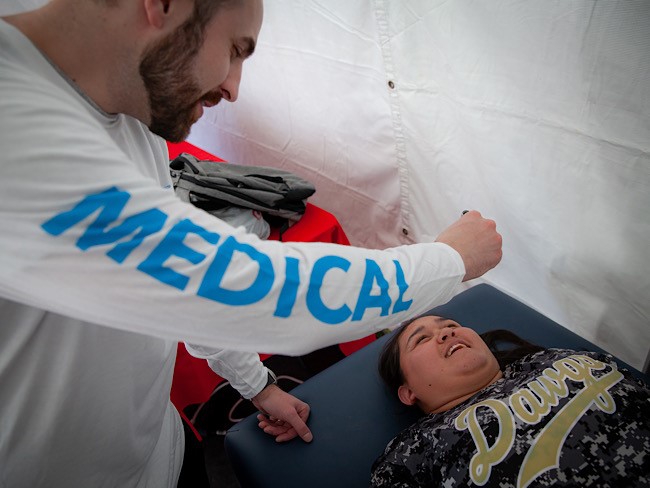
March 4, 2024
Taking care of Special Olympics athletes
Kaiser Permanente physicians and medical students provide medical exams …

February 2, 2024
Expanding medical, social, and educational services in Watts
Kaiser Permanente opens medical offices and a new home for the Watts Counseling …

January 31, 2024
Prioritizing policies for health and well-being in Colorado
CityHealth’s 2023 Annual Policy Assessment awards cities for their policies …

December 20, 2023
Funding solutions to end gun violence
Researchers and organizations are exploring inventive ways to reduce gun …

December 20, 2023
Championing inclusivity at the Fall Games
Kaiser Permanente celebrates inclusion at Special Olympics Southern California …

December 11, 2023
Our health plans earn high ratings
Kaiser Permanente’s commercial and Medicare health plans are rated either …

December 7, 2023
Safe, secure housing is a must for health
We offer housing-related legal help to prevent evictions and remove barriers …
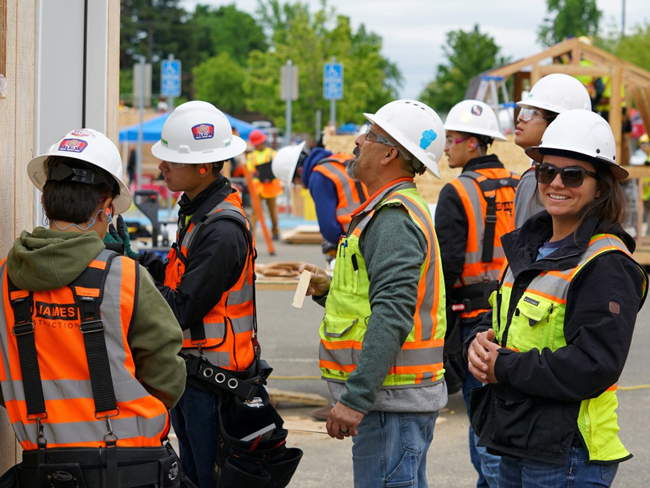
December 6, 2023
Solid foundation: How construction careers support health
Steady employment can improve a person's health and well-being. Our new …

November 1, 2023
Meet our 2023 to 2024 public health fellows
To help develop talented, diverse community leaders, Kaiser Permanente …

September 27, 2023
10 school districts receive next round of RISE grants
The Thriving Schools program helps educators and students in Colorado integrate …

August 28, 2023
Grants improve the total health of our communities
Kaiser Permanente increases access to mental health services in Southern …

August 15, 2023
'Hot-spot' strategy gets more Californians vaccinated
A new location-based vaccine strategy by Kaiser Permanente was successful …

August 10, 2023
Highlighting our community health work in Southern California
The Kaiser Permanente Southern California 2022 Community Health Snapshot …

August 2, 2023
Social health resources are just a click or call away
The Kaiser Permanente Community Support Hub can help members find community …

August 1, 2023
Joining forces to improve community health
The Kaiser Permanente and 211 LA partnership makes strides in improving …

June 30, 2023
Our response to Supreme Court ruling on LGBTQIA+ protections
Kaiser Permanente addresses the Supreme Court decision on LGBTQIA+ protections …

June 29, 2023
Our response to Supreme Court's ruling on affirmative action
Kaiser Permanente addresses the Supreme Court decision on affirmative action …

June 29, 2023
Special Olympics athletes go for the gold
Kaiser Permanente celebrated its sixth year as official health partner …

June 14, 2023
Honored for commitment to people with disabilities
The Achievable Foundation recognized Kaiser Permanente for its work to …

June 7, 2023
Engaging businesses for action on climate and health equity
New climate collaborative with BSR announced at joint Kaiser Permanente …
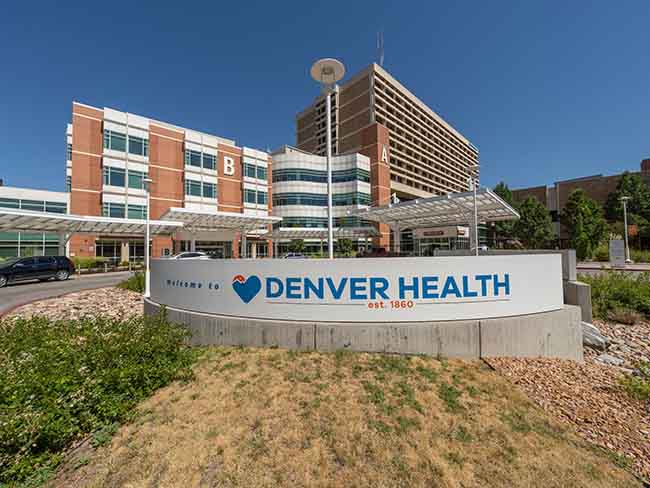
May 30, 2023
Kaiser Permanente commits up to $10 million to Denver Health
Funding comes as Denver Health provided $120 million in uncompensated care …

May 22, 2023
Investing and partnering to build healthier communities
Kaiser Permanente supports Asian Americans Advancing Justice to promote …
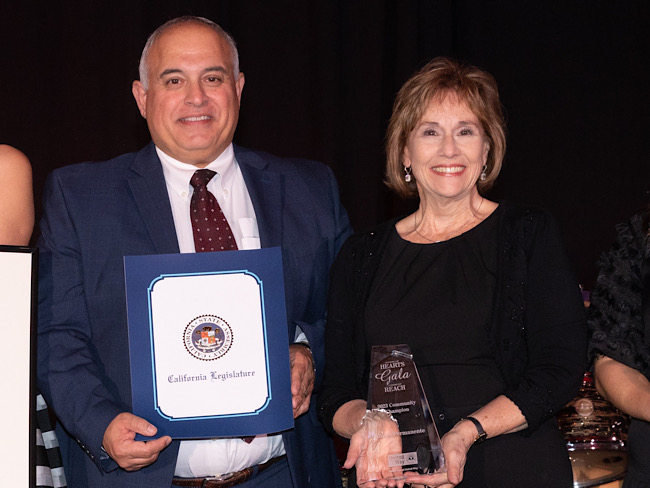
May 19, 2023
Partnering to improve the health of homeless individuals
Grant funds will combat housing inaccessibility and improve health care …

May 16, 2023
How we help people access financial literacy skills
Kaiser Permanente is working with community partners to reduce financial …

May 10, 2023
A workplace for all
We are building inclusive work and care environments where everyone feels …

May 10, 2023
Health equity, inclusion, and belonging
We strive for fairness, respect, and inclusion for all.
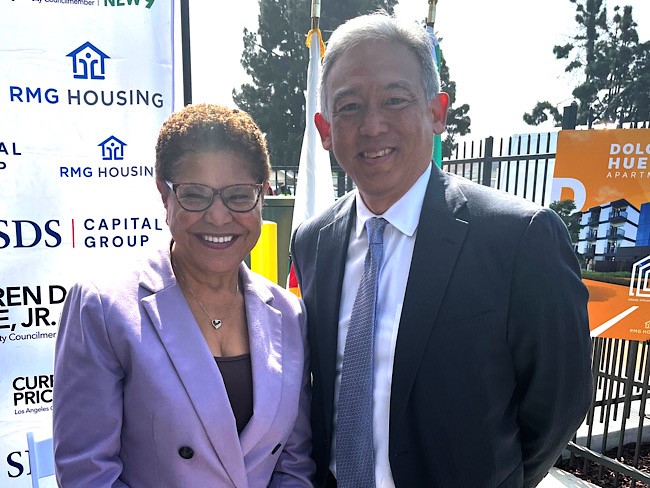
May 3, 2023
Transforming the lives of people experiencing homelessness
Kaiser Permanente recognizes that safe, affordable housing is crucial to …

May 2, 2023
Women lead an industrial revolution at the Kaiser Shipyards
Early women workers at the Kaiser shipyards diversified home front World …
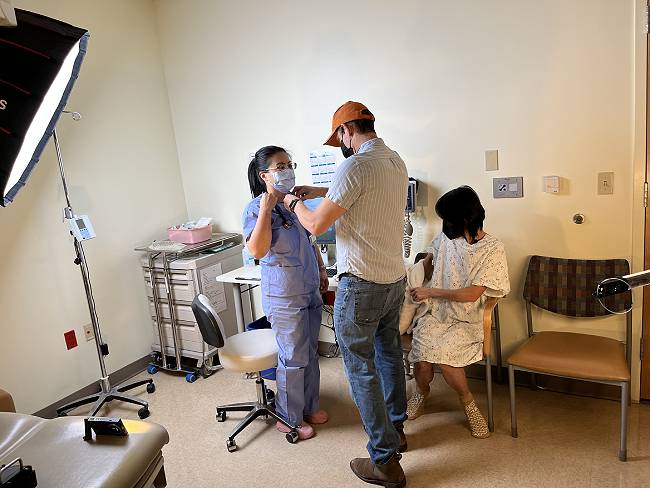
April 27, 2023
Inspiring students to pursue health care careers
Kaiser Permanente is confronting future health care staffing challenges …

April 25, 2023
Hannah Peters, MD, provides essential care to ‘Rosies’
When thousands of women industrial workers, often called “Rosies,” joined …

April 18, 2023
When health and housing combine, good things happen
Kaiser Permanente takes steps to preserve affordable housing and sees successes …

April 11, 2023
Collaboration is key to keeping people insured
With the COVID-19 public health emergency ending, states, community organizations, …

April 5, 2023
Housing help brings stability to patients’ lives
With medical-legal partnerships, we’re helping prevent evictions. Patients …
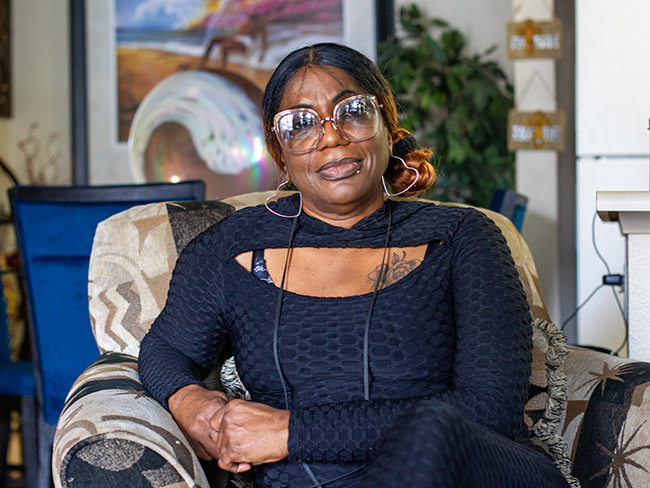
April 3, 2023
Hospital patients who are homeless connected to housing
A Kaiser Permanente program connects patients experiencing homelessness …

March 29, 2023
Supporting a safer future with public health
We’re partnering on 3 initiatives to strengthen public health in the United …

February 17, 2023
Good health starts in our communities: 2022 by the numbers
Kaiser Permanente supports total health in our communities in partnership …
February 2, 2023
Addressing social isolation in the Northwest
Kaiser Permanente invests $3.3 million to build healthy social connections …

January 17, 2023
Lawmakers must act to boost telehealth and digital equity
Making key pandemic-era telehealth policies permanent and ensuring more …

November 14, 2022
It’s time to rethink health care quality measurement
To meaningfully improve health equity, we must shift our focus to outcomes …

November 11, 2022
High-quality, equitable care
We believe everyone has a right to good health.
November 11, 2022
Early leaders in equity and inclusion
Explore Kaiser Permanente’s commitment to equitable, culturally responsive …

November 8, 2022
Protecting access to medical care for legal immigrants
A statement of support from Kaiser Permanente chair and CEO Greg A. Adams …

August 24, 2022
Grant to Aloha Harvest supports food security
Grant of $50,000 will provide 1,000 healthy meals to individuals with low …

July 29, 2022
Health care workforce
Strengthening America’s health care workforce

March 22, 2022
Our commitment to equity and our LGBTQIA+ communities
A statement from chair and chief executive officer Greg A. Adams.

February 21, 2022
A best place to work for LGBTQ+ equality
Human Rights Campaign Foundation gives Kaiser Permanente another perfect …
February 14, 2022
Health care scholarships available
Kaiser Permanente in Hawaii to provide up to $100,000 in scholarships to …

August 25, 2021
Kaiser Permanente’s history of nondiscrimination
Our principles of diversity and our inclusive care began during World War …

July 22, 2021
A long history of equity for workers with disabilities
In Henry J. Kaiser’s shipyards, workers were judged by their abilities, …
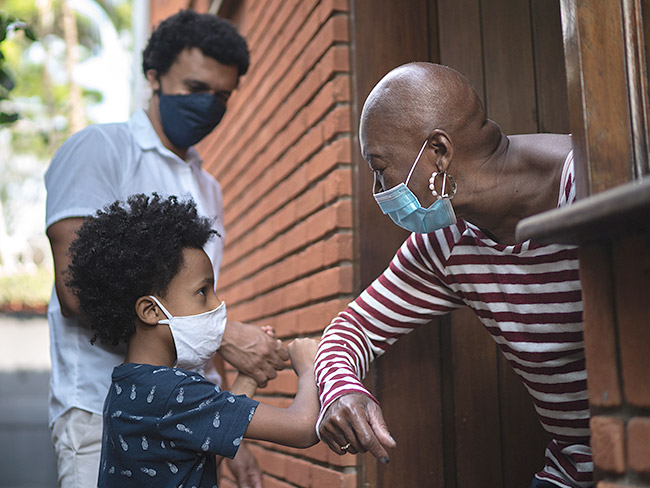
July 7, 2021
Achieving health equity
Equal medical care is not enough to end disparities in health outcomes.

June 2, 2021
Path to employment: Black workers in Kaiser shipyards
Kaiser Permanente, Henry J. Kaiser’s sole remaining institutional legacy, …
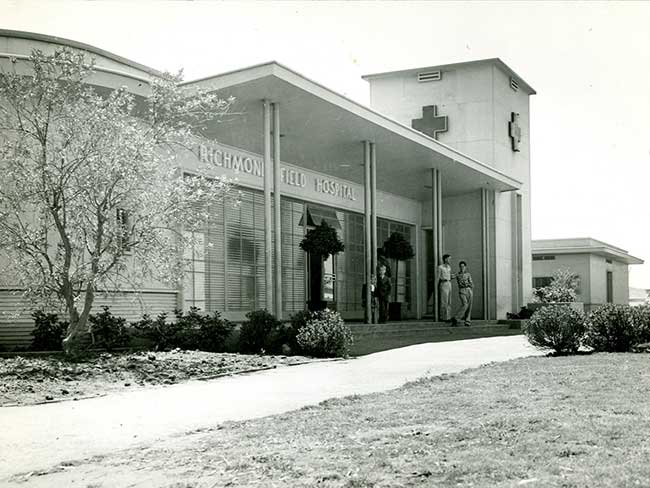
February 22, 2021
The Permanente Richmond Field Hospital
Forlorn and all but forgotten, it played a proud role during the World …
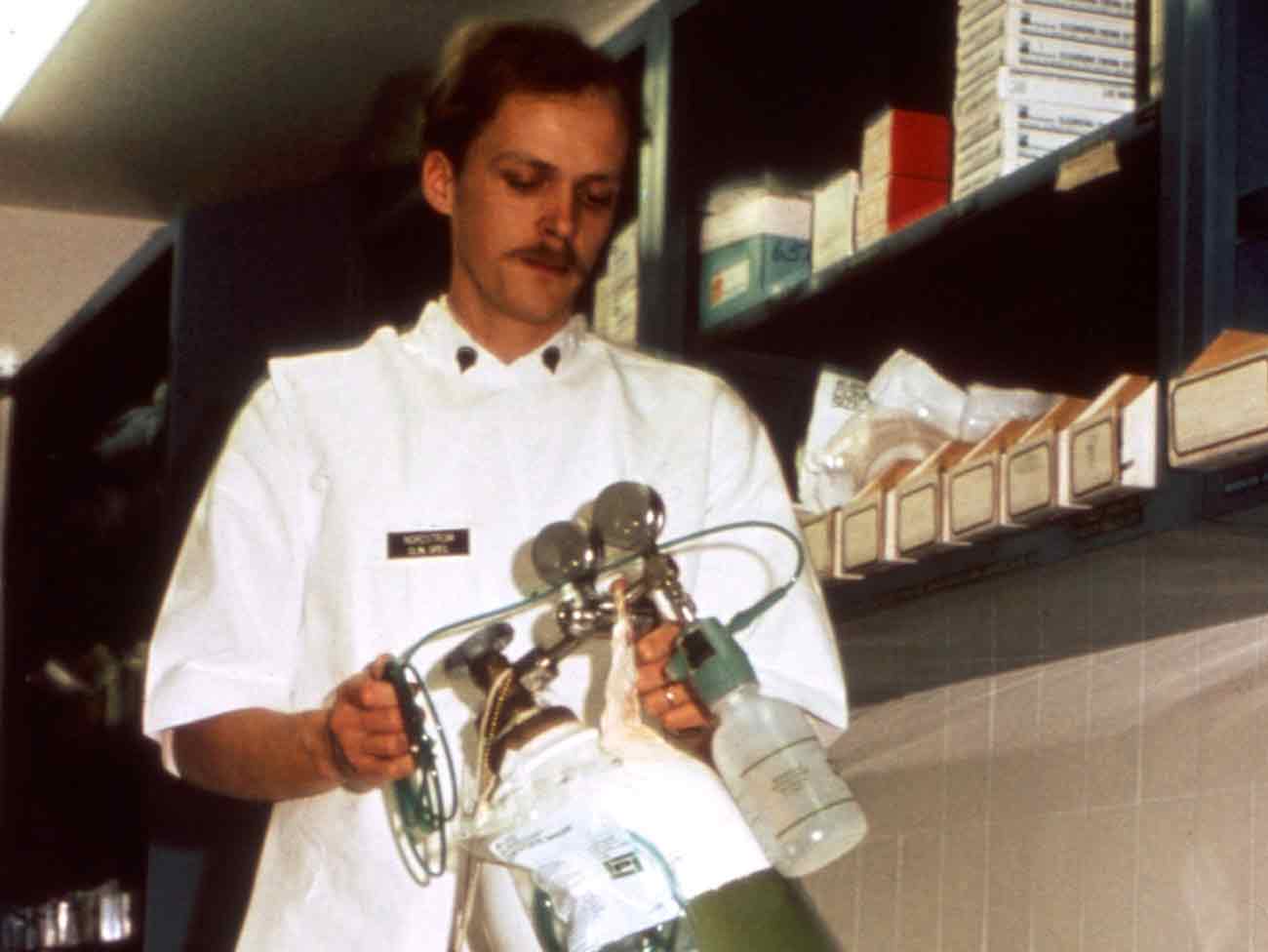
November 8, 2019
Swords into stethoscopes — veterans in health professions
Kaiser Permanente has actively hired veterans in all capacities since World …

August 28, 2019
When labor and management work side by side
From war-era labor-management committees to today’s unit-based teams, cooperation …

June 5, 2019
Breaking LGBT barriers for Kaiser Permanente employees
“We managed to ultimately break through that barrier.” — Kaiser Permanente …

March 29, 2019
Equal pay for equal work
Kaiser shipyards in Oregon hired the first 2 female welders at equal pay …
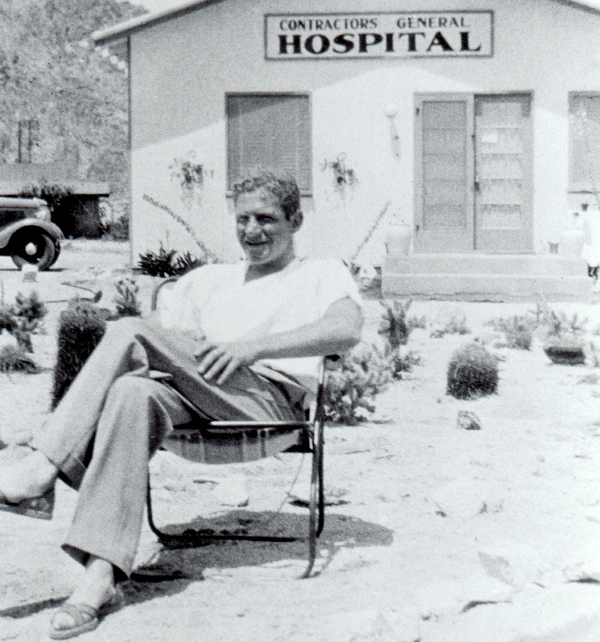
March 26, 2018
5 physicians who made a difference
Meet 5 outstanding doctors who advanced the practice of medical care with …

March 8, 2018
Slacks, not slackers — women’s role in winning World War II
Women who worked in the Kaiser shipyards helped lay the groundwork for …

February 22, 2018
The amazing true story of Park Ranger Betty Reid Soskin
She is the oldest national park ranger in the country with a legacy of …

November 7, 2017
Patriot in pinstripes: Honoring veterans, home front, and peace
Henry J. Kaiser's commitment to the diverse workforce on the home front …

October 12, 2017
An experiment named Fabiola
Health care takes root in Oakland, California.

August 10, 2017
‘Good medicine brought within reach of all'
Paul de Kruif, microbiologist and writer, provides early accounts of Kaiser …
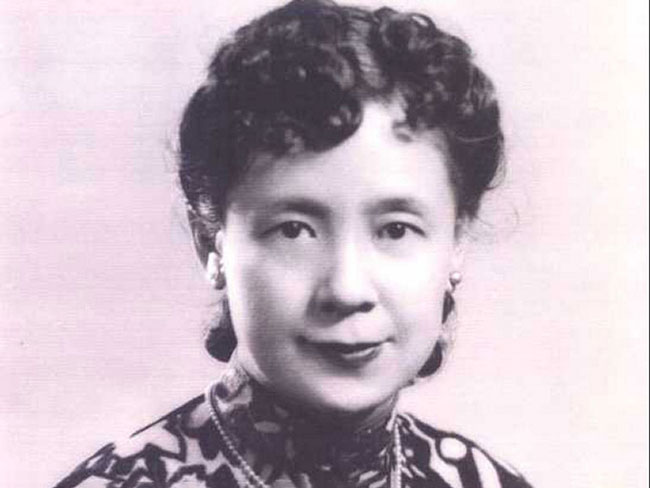
March 7, 2017
Beatrice Lei, MD: From Shantou, China, to Richmond, California
She served as a role model and inspiration to the women physicians and …

March 1, 2017
Screening for better health: Medical care as a right
When industrial workers joined the health plan, an integrated battery of …